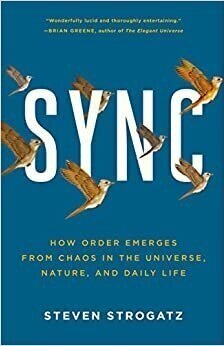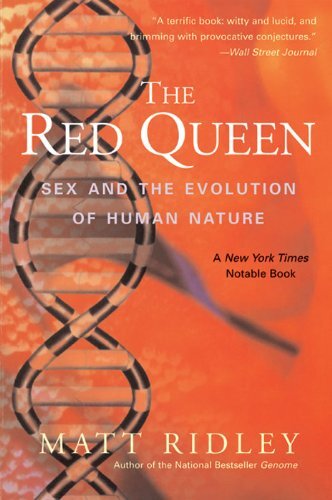21 Popular Science Books That Will Change Your Life and Expand Your Mind
My friend, Connor Murphy, a founder and CEO of Bridge, asked me recently about my super powers.
One of them is that I spent 15 years obsessively reading popular science books and specifically, I read a lot about Complex Systems.
Knowledge of any kind is a super power.
I firmly believe that by reading widely, across different disciplines, and particularly science, one can become a better investor, and a better founder.
In life there are 3 ways to learn - from people, from travel, and from deep reading. The more you read, the more you diversify your mind, the more patterns you can see, and the more dots you can connect.
These days, we are drowning in fast, bite size information, and I am a victim of it as well. I too enjoy blog posts and Twitter, but recently, I really pushed myself to get back to reading books, especially popular science ones.
Here are the books that truly changed my life, and expanded my mind.
🕸️ Complexity Science Books
If you read only one book from this list, make it Complexity by Mitchell Waldrop.
This book changed my life forever, led me to create my first company and, to this day, had the most profound impact on me.
Complexity science is a study of patterns and common themes across nature and science. It teaches that most universal systems - economies, societies, genes, galaxies - are emergent and self-organizing, where simple building blocks, through non-linear interactions, give rise to complex behaviors.
Complex systems can be modeled as networks. Complex living systems have many properties, including ability to adapt to their environment.
Waldrop’s book is a tour de-force tracing the origin of Complexity science and spotlighting the incredible work done by scientists at Santa Fe Institute.
If you’ve enjoyed Complexity, this book will be a refreshing and challenging “sequel”.
This is more advanced with a bit of math, biology and chemistry, but I found it incredibly fascinating and helpful.
How does life itself arises? Kauffman argues that it happens through so called autocatalytic set. Sounds like a very fancy science word? Not really.
Imagine two molecules A and B that got together and made two more molecules - AB and BA. Then they all got together and made AAB, BBA, ABA, BAB, and so on. Looks familiar? You got it. Replace AB with AT and add CG and you get DNA.
And more relevant to startups and venture capital - networks and marketplaces that take off are autocatalytic sets. Think Twitter - readers can be writers, and writers and be readers.
More Complexity Science books you might like
🧬 Bio, Genomics and Neuroscience Books
21st Century is a century of Biology or as A16Z put it bio eats world. These books are eye opening, mind bending and incredibly entertaining.
In this recent book, David Sinclair, a Harvard Professor and a life-long researcher in longevity argues that we are getting close to unlocking the secrets and potentially reversing aging.
Sinclair argues that all modern diseases - heart, cancer, dementia, diabetes - are all manifestation of one disease - aging. As we live, entropy causes degradation in our cells - same as with any physical system, but Sinclair argues that it can be controlled.
He believes that by altering our genes and developing anti-aging therapies we will be able to substantially extend the human lifespan.
He advocates that aging should not just be accepted by society but should be acknowledged and treated as a disease.
Wow! Scary, creepy, exciting, mind blowing. These are my reactions as I was having while reading Jamie Metzl’s book about the future of genetic engineering and the future of humanity.
Jamie argues that technologies like CRISPR are putting us on the brink of outrunning the natural evolution and entering the age of altering human beings.
From the designer babies, to curing diseases, to perfect foods, universal soldiers and immortality this book has it all.
Jamie also does a great job shining the light onto ethical and societal challenges surrounding bioengineering.
We are information processing machines and the brain is the command and control.
But just how much in control are we really?
Norretranders argues that most of our life is spent in an autopilot mode, controlled by subconscious parts of our brain.
Why? To start with, there is a 30 seconds delay before information can get to our so called minds or conscious parts of the brain. Beyond the delay some information is just filtered out.
The book does a terrific job mixing information theory, neuroscience and ethics.
We’ve all heard that sleep is essential for health, but why?
In this outstanding book a UC Berkley Professor Mathew Walker is taking us on a 360 journey around sleep. This is an amazing and eye-opening book.
From Circadian rhythms, to sleep disorders, to how sleep is impacted by our daily lives, to how babies, teenagers, adults and elderly all have different sleep patterns, from early birds to night owls - Walker, who spent his entire career studying sleep, covers it all.
The book is incredibly well written and full of fun anecdotes, insights, and tips for how to improve sleep and ultimately our health.
Another mind-bending book that illuminates the connection between our mind and our gut.
Our brains have several hundred billion neurons, but did you know that our guts have 50 million? Gut and the brain are connected through the intricate signaling network.
Why? Because we are information processing machines and, after all, food is one of the most important forms of information for our bodies.
Beyond the connection, the book describes our guts and our bodies as homes to trillions of bacterial species, who are symbiotic with us - or perhaps - control us?!
The book also delivers a clear message just how critical our microbiomes are for our overall health. You are what you eat suddenly takes on a whole new meaning!
The world of genomics and biology evolves so quickly and science has been making truly incredible leaps. Yet, these 3 below are absolute classics and I highly recommend checking them out as well.
🔭 Other Awesome Science Books
No list of the greatest science books of all times could possibly be complete without this Pulitzer prize winning epic by Douglas Hofstadter.
At the center of the book is the so-called Incompleteness Theorem by Kurt Godel - arguably the most important theorem in entire field of Mathematical Logic. Godel proved that no matter how we setup a system of axioms there will exist mathematical truths that could not be proven. This means that mathematics is, fundamentally incomplete.
At the heart of the proof is recursion and impossibility of self-reference. Hofstadter cleverly combines anecdotes, entertaining writing style, work of an amazing artist M.C. Escher, fugues of Bach and much, much more to create this unique, mind-bending gem. He draws a parallel to a human brain concluding that we can’t really know ourselves.
Gleick’s book defined a genre in popular science - explaining a whole new discipline by illuminating the lives of the scientists and tracing the history behind it.
A popular explanation of Chaos Theory is a Butterfly Effect - a butterfly flipping wings in Brazil could lead to a storm in Texas.
A small change in initial condition of a system could lead to completely different future states. Thats why, for example, identical twins look less similar over time.
Chaos was discovered by Edward Lorenz a mathematician who was trying to predict weather patterns. Gleick makes concepts very accessible, despite needing a bit of math.
We live inside a universal quantum computer, which creates infinite number of parallel universes.
Sounds like a lot to take in?
Luckily Deutsch has a remarkable ability to explain complex concepts.
He skillfully blends information theory, computation, quantum mechanics, looks into the nature of mathematics, how life comes about, quantum computers, parallel universes, and time travel.
This book is awesome and will keep you flipping page after page.
While not the most profound, certainly one of the most fun science books I’ve ever read.
Simon Singh takes us on the historical tour of cryptography from the earliest cyphers to quantum computing and everything in between.
You learn how people evolved increasingly sophisticated ways to pass around, and keep secrets from each other. I particularly enjoyed reading about Alan Turing’s work on cracking the Enigma’s code during WW II.
As the book spins its narrative, the arc rivals Alice and Bob continue to create and break each other’s secrets, leading to inevitable conclusion that no secret will ever be bulletproof, but we will never stop trying.
And last, but not least, here are the 3 books I loved on cosmology and modern physics.
I hope you pick up some of these books, I promise you — all of them are terrific and will broaden your perspective on the world.
My obvious ask - please add YOUR favorite popular science books in the comments section of this blog post.





















